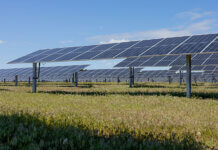Con Edison is marking a 250 MW milestone in solar energy production, thanks to more than 26,000 New York City and Westchester County, N.Y., homeowners and businesses with panel installations.
Residential solar accounts for more than 90% of the projects and 50% of the overall capacity. Further, another 3,300 customers have 100 MW of solar projects in progress, the utility notes.
“When the first solar panels were installed in Westchester in 2001, the dynamic between the utility and the customer changed forever. It required a new business model and spurred ideas that informed the grid of future,” comments Matthew Ketschke, senior vice president of customer energy solutions at Con Edison. “Solar technology allowed us to redefine our relationship with customers; reconfigure our energy delivery system; and rethink ways to improve reliability, affordability and sustainability.”
According to the utility, the change is comprehensive: It includes continued upgrades to infrastructure to create a smarter, modernized grid able to accommodate a two-way flow of electricity. The company continues its work with state and local agencies, partners, and solar installers to standardize regulations and policies. The utility also provides customers with information to help them decide whether solar energy is right for them.
The tipping point for solar adoption occurred in early 2013, according to Con Edison. Since then, the amount of solar capacity has increased 600%, from 34 MW to 250 MW.
Going forward, Con Edison says the installation of battery storage will be important in making the grid more efficient and reducing the need for power from less environmentally friendly generation sources during times of peak demand.
In addition, Con Edison’s Shared Solar program will make it possible for more customers to participate in solar. The company plans to install panels on the roofs of its buildings and make the power available to low-income customers.
The company also supports utility ownership of large-scale renewable generation, which could be less costly for customers, as utilities can finance and operate these projects less expensively than private developers, notes Con Edison.




